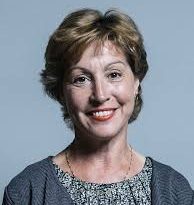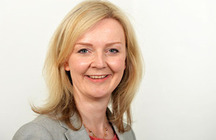Robert Largan – 2020 Maiden Speech in the House of Commons
Below is the text of the maiden speech made by Robert Largan, the Conservative MP for High Peak, in the House of Commons on 23 March 2020.
I rise as one the last new Members to give their maiden speech. I had planned to speak on the Budget last week, but I did not feel that a traditional maiden speech full of local anecdotes and questionable jokes was suitable in the current circumstances. Needless to say, the speech that I am giving now is very different from the one I had originally written.
I had desperately wanted my parents to be able to sit in the Gallery to watch me give this speech today, but my parents are both in their 70s, in high-risk groups, and, frankly, I dare not wait any longer. My dad was one of eight children from an Irish Catholic family in Salford. He was the only one to pass the 11-plus and went on to do a wide range of jobs, from being a Shabbos goy to a postman to a trade union shop steward. My mum left school with no qualifications, after having to take care of her younger sisters following the death of her father on her 11th birthday. Despite that, she had a groundbreaking career at the Department of Social Security, helping unemployed people back into work. My parents taught me the importance of public service and doing the right thing. They are the reason I am standing here today. It fills me with more pride than I can ever fully explain that they are able to watch me give this speech, even if it has to be on television.
I am also very grateful to see the shadow Health Secretary in his place. Like me, he went to Philips High School. For a comprehensive in north Manchester to have produced two Members of Parliament is a very rare achievement indeed.
When I put myself forward for election, campaigning for improved transport in the north, I could not possibly have imagined making my first speech in a debate such as this. As it turns out, being in this place makes me incredibly fortunate. I stand here with a secure job—for the next four years at least—and a guaranteed salary. That many of my constituents do not have the same security plays heavily on my mind. I am particularly concerned about the self-employed. They do not benefit from the job retention scheme, and many are seeing a big drop in their income. The Government have sensibly brought in protections such as the mortgage holiday and suspension of evictions, but many self- employed people, often with families to support, are understandably worried about the future, so I call on the Government to look urgently at more ways to support them. I realise that that is a simple thing to say and a difficult thing to do. Anybody can be a critic. I know a huge number of people are working day and night, many not seeing their own families, to tackle this pandemic head on. I am sure I speak for the whole House when I say to those people, thank you.
This crisis is without precedent and we are all navigating without a map. Events are moving in minutes and hours, not days and weeks. That is why this emergency legislation is necessary. We have to give the Government the tools they need to respond quickly to events. But it is also essential that we keep Parliament functioning as best we can, so that we can continue to challenge those decisions and hold Ministers to account.
The crisis is undoubtedly bringing out the best in the people of High Peak. It is a staggeringly beautiful place, and we are very lucky to live there, but as beautiful as the High Peak is, it is the people who make it so special, and in this crisis they are pulling together, just like they did during the evacuation of Whaley Bridge last year, when the dam at Toddbrook reservoir partially collapsed.
This time, volunteer groups have sprung up in almost every town and village. Teachers are delivering packed lunches to the homes of children on free school meals. Food banks are working day and night to support the most vulnerable. In many ways, that is what makes the situation so hard. People want to come together and look after each other. Social distancing is counter to our natural instincts, and I do worry about the toll that this isolation is going to take on the nation’s mental health.
I come to this place intending to take an independent-minded approach and prepared to criticise my party and the Government when they get things wrong—and they will, as I have no doubt I will too. I am keenly aware that I was elected by the smallest of margins, just 590 votes. People did not vote for me because they agreed with every single line of the Conservative manifesto. Many lent me their vote, often reluctantly, after their pencil hovered over the ballot paper for a long time. So I want to make it clear to the people of High Peak that I am working round the clock, trying my best to represent everyone, no matter who they voted for. I will not get everything right, and I will make mistakes, but I promise that I will always put the High Peak ahead of party politics.
I want to quickly finish with a note of caution on the limits of power and our ability to achieve the things we hope for. The best intentions can easily get blown off course by events. Far too often, politics is boiled down to a contest between a simple, easy-to-sell magic solution and a nuanced, hard-to-explain truth. The truth is that governing is hard. It involves taking almost impossible decisions between competing lesser evils. There are rarely, in reality, obvious right and wrong choices, so we should be wary of those who are always certain or never change their minds. Ideological purity is a moral maze that many get lost in. For the modern puritan, it is no longer enough to accept that someone disagrees with them. They think that others can disagree with them only because their motives are malign. If our history has taught us anything, it is that we must reject that puritanism. Our greatest reforms—universal suffrage, civil liberties, the NHS—were secured not through ideological purity or confrontation, but by collaboration and taking the view that compromise is not betrayal but a kind of victory.


